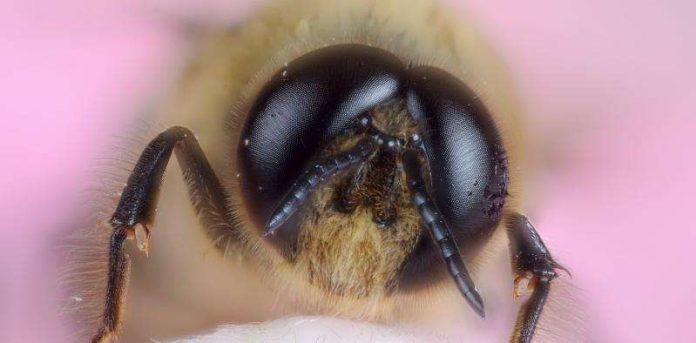Subjective experience is considered to be a basic and fundamental aspect of human consciousness that presents the world in an egocentric relationship to the individual. Andrew B. Barron and Colin Klein of the University of California at Santa Barbara are the first to show that the same basic aspect of consciousness exists in insects and has since insects first arose on Earth.
The study is the first to establish a structural and anatomical basis for subjective experience in insects. The study avoided any potential for anthropomorphism by examining only the behavior of present day insects and an examination of the morphology of the oldest known insects. The researchers found structures in ancient insects and modern insects that perform the same function in subjective experience as the midbrain in humans.
Part of the basis of subjective experience is the capacity to orient oneself to the environment and to navigate thorough a given environment. The ability of all known insects to navigate an unknown environment and find their way back to a nest is evidence of the rudiments of subjective consciousness. The brain structure of all insects is basically the same and the researchers propose that the brain structures that produce rudimentary consciousness exist in all insects and their most ancient ancestors.
The study does not propose that insects are conscious in the sense that humans are. The new evidence and a review of the literature indicate that a necessary part of human consciousness called subjective experience existed in arthropods and the oldest known Cambrian vertebrates. The study suggests that this consciousness was passed to mammals as mammals emerged from the sea on to land and eventually to the oldest ancestors of man.















